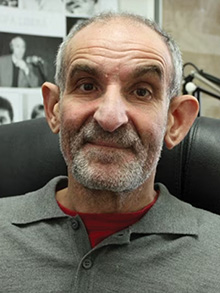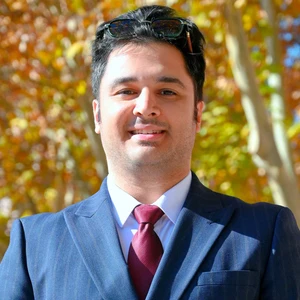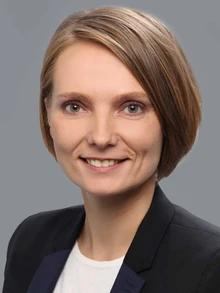
Armenia–Turkey Normalisation Process: What Next?
 By Benyamin POGHOSYAN, PhD, Senior Research Fellow at the APRI Armenia
By Benyamin POGHOSYAN, PhD, Senior Research Fellow at the APRI Armenia
Since Armenia gained independence from the Soviet Union in 1991, normalizing relations with Turkey has been one of the country’s top foreign-policy priorities. The rationale behind this has been both economic, to end the blockade and facilitate access to Turkish Mediterranean ports, and political, to drive a wedge in the Azerbaijan–Turkey strategic partnership. Armenia took steps towards normalization in 2008 and 2009. As a result of intensive negotiations, Armenia and Turkey signed two protocols in Zurich in 2009 to open their borders and establish diplomatic relations. However, Turkey did not ratify them, under intense pressure from Azerbaijan.
READ MORE
- EGF Editor |
Published on EGF: 06.05.2025
| External Relations
-
Azerbaijan-Georgia Ties Strengthened by Shared Stances on Key Regional Issues
 By Vasif HUSEYNOV, PhD, Head of Department, AIR Center, Adjunct Lecturer, ADA and Khazar Universities, Baku By Vasif HUSEYNOV, PhD, Head of Department, AIR Center, Adjunct Lecturer, ADA and Khazar Universities, Baku
On April 15–16, the newly elected President of Georgia, Mikheil Kavelashvili, paid an official visit to Azerbaijan. The visit was of notable symbolic importance since it was Kavelashvili’s first foreign visit as president. The Azerbaijani side appreciated this gesture, as Azerbaijani President Ilham Aliyev stated in the joint press conference with Kavelashvili, “It once again reflects the essence of Azerbaijan-Georgia relations and the friendship and brotherhood between our peoples”. Earlier on January 17, the re-elected Georgian Prime Minister Irakli Kobakhidze also paid his first official visit to the Azerbaijani capital after the elections. Aliyev characterized this as the emergence of a “wonderful tradition” and underlined its symbolic importance of the relations between the two countries. READ MORE
- EGF Editor |
Published on EGF: 06.05.2025
| External Relations
-
Peace on Paper, Pressure in Practice: Why Baku Isn’t Rushing the Deal  Interview with Eugene KOGAN, Tbilisi-based defence and security expert Interview with Eugene KOGAN, Tbilisi-based defence and security expert
In a wide-ranging conversation with Radio Free Europe Georgian service, Kogan offers a stark assessment of the much-hyped Armenia–Azerbaijan peace deal. Though labelled “historic”, the agreement remains stalled. Baku, holding the stronger hand, is in no rush to finalize it—using the drawn-out process to pressure Armenia into further concessions, including the Zangezur corridor and constitutional changes on Nagorno-Karabakh. Meanwhile, Armenia, increasingly isolated and eager to sign, lacks meaningful alternatives or strong international backing. Without a neutral mediator and amid shifting regional alliances—especially Georgia’s pivot toward Moscow—the deal looks more like a tool of leverage than a step toward lasting peace.
READ MORE
- EGF Editor |
Published on EGF: 06.05.2025
| External Relations
-
US–Russia Talks: Implications for Armenia–Azerbaijan Negotiations
 By Benyamin POGHOSYAN, PhD, Senior Research Fellow at the APRI Armenia
By Benyamin POGHOSYAN, PhD, Senior Research Fellow at the APRI Armenia
The promise to end the war in Ukraine quickly was one of Donald J. Trump’s main campaign pledges. Upon returning to the White House in January 2025, the president began taking steps toward this goal. The world witnessed a whirlwind of negotiations: face-to-face meetings between Mr. Trump’s envoy, Steven Witkoff, and Russian President Vladimir Putin; multiple phone calls between Mr. Trump and Presidents Putin and Volodymyr Zelensky; direct US–Russia and US–Ukraine talks in Saudi Arabia; and a tense meeting in the Oval Office with Mr. Zelensky.
As a result, Russia and Ukraine agreed to suspend attacks on each other’s energy infrastructure for one month. Negotiations are now underway for a broader ceasefire. It is too early to assess the likelihood of a complete and lasting ceasefire — let alone the prospects for a comprehensive peace agreement between Russia and Ukraine.
READ MORE
- EGF Editor |
Published on EGF: 27.03.2025
| External Relations
-
Azerbaijan, Israel, and United States Seek Trilateral Cooperation Format
 By Vasif HUSEYNOV, PhD, Head of Department, AIR Center, Adjunct Lecturer, ADA and Khazar Universities, Baku By Vasif HUSEYNOV, PhD, Head of Department, AIR Center, Adjunct Lecturer, ADA and Khazar Universities, Baku
On March 6, the office of Israeli Prime Minister Benjamin Netanyahu announced that Israel is engaged in discussions with the United States “to establish a strong foundation for trilateral cooperation between Israel, Azerbaijan, and the U.S.”. This statement coincided with debates in the Knesset on “Upgrading the Strategic Alliance between Israel and Azerbaijan”. The Prime Minister’s Office (PMO) highlighted Azerbaijan’s role as a “strategic ally in the Caucasus region,” with bilateral cooperation spanning security, trade, technology, and energy. Israeli National Missions Minister Orit Strock, speaking on behalf of the government, emphasized the unique and long-standing friendship between Israel and Azerbaijan. READ MORE
- EGF Editor |
Published on EGF: 27.03.2025
| External Relations
-
The Kurdish Issue in Syria and the Future of Turkey’s Role in the Levant  By Yeghia TASHJIAN, Beirut-based regional analyst and researcher, columnist, "The Armenian Weekly” By Yeghia TASHJIAN, Beirut-based regional analyst and researcher, columnist, "The Armenian Weekly”
With the disintegration of the Syrian state after 2011, the Kurds in northeast Syria became key players in shaping the country’s future. The recent agreement between Damascus and the Kurdish-led Syrian Democratic Forces (SDF) further consolidated their role. However, the future of the Syrian state remains uncertain amid the horrors of the massacres of Alawites on the Syrian coast by radical Islamist factions affiliated with the new administration, Israel’s aspirations to encourage secessionist tendencies among the Druze community in Syria’s south, and Turkey’s strategic interests in Syria, which seem to collide with American- Israeli interests. This article sheds light on the agreement between Syria’s President Ahmad al-Sharaa and SDF General Mazloum Abdi and assess Turkey’s ambitions amid growing domestic and regional uncertainties shaping Syria’s future.
READ MORE
- EGF Editor |
Published on EGF: 22.03.2025
| External Relations
-
Azerbaijan’s Pivotal Role within the Organization of Turkic States  By Vusal GULIYEV, Policy Advisor at the Center of Analysis of International Relations and Head of Shanghai Office at AZEGLOB Consulting Group By Vusal GULIYEV, Policy Advisor at the Center of Analysis of International Relations and Head of Shanghai Office at AZEGLOB Consulting Group
Azerbaijan’s strategic location in the South Caucasus, economic potential, and historical ties with Turkic states underscore its regional significance. Positioned as a vital energy corridor, it fosters economic diversification, infrastructure development, and diplomatic engagement with Central Asia. Azerbaijan plays a key role in regional connectivity, humanitarian initiatives, and multilateral cooperation within the Organization of Turkic States, shaping geopolitical dynamics.
Situated at the nexus of Europe and Asia, Azerbaijan’s proximity to significant energy producers and consumers has established it as a vital transit corridor for energy resources. This strategic positioning has not only reinforced Azerbaijan’s centrality in regional energy security but also facilitated avenues for collaboration and partnerships with neighbouring states. In addition to its prominence in the energy sector, Azerbaijan has pursued economic diversification, fostering expertise in fields such as advanced technology, transportation, and tourism. READ MORE
- EGF Editor |
Published on EGF: 08.03.2025
| External Relations
-
Stalemate Persists in the Armenia-Azerbaijan Peace Process
 By Vasif HUSEYNOV, PhD, Head of Department, AIR Center, Adjunct Lecturer, ADA and Khazar Universities, Baku By Vasif HUSEYNOV, PhD, Head of Department, AIR Center, Adjunct Lecturer, ADA and Khazar Universities, Baku
Armenia and Azerbaijan remain at an impasse in their ongoing peace process, facing the conditions of withdrawing international lawsuits and agreeing on a ban against third-party military forces along their border. Armenia’s constitutional claims over Karabakh and the dissolution of the OSCE Minsk Group remain sensitive topics. Azerbaijan insists on amending Armenia’s constitution to eliminate future territorial disputes, while Armenia faces legal and political hurdles in making such changes. Disagreements over reopening transportation links further hinder the peace process. Azerbaijan demands an “unimpeded” land passage to its Nakhchivan exclave via Armenia’s Meghri region, while Armenia insists on controlled transit. This unresolved dispute continues to block progress toward a final agreement. READ MORE
- EGF Editor |
Published on EGF: 28.02.2025
| External Relations
-
Germany’s Perceptions of Turkey’s Policy in the South Caucasus

 By Daria ISACHENKO, PhD, Associate Researcher, SWP Berlin/ CATS
By Daria ISACHENKO, PhD, Associate Researcher, SWP Berlin/ CATS
Franziska SMOLNIK, PhD, Senior Fellow, SWP Berlin
Turkey is a NATO ally, an EU membership candidate, and a confident geopolitical actor. The latter aspect is uppermost in Berlin’s assessment of Ankara’s policy in the South Caucasus, where Turkey’s growing influence is recognised. If they are to make the most of the potential for cooperation, Ankara, and Berlin each need to acknowledge the other’s foreign policy framework and find ways to reconcile Turkey’s autonomous line with Germany’s EU-oriented and often normative approach.
The current state of Turkish foreign policy towards the South Caucasus rather resembles the situation in the Balkans, where “Ankara pursues a parallel, as opposed to an adversarial, strategy to that of the West”. Given that the South Caucasus does not involve sensitive issues such as those that characterise Ankara’s and Berlin’s bilateral relations, nor flashpoints in the Middle East and the Eastern Mediterranean where their positions clearly diverge, it should theoretically be possible for Ankara and Berlin to start exploring areas of cooperation. If that is to happen, a middle ground will need to be found between Turkey’s autonomous action and Germany’s EU-embedded approach. Moreover, Berlin – and Brussels – will have to determine more clearly how to reconcile normative and geopolitical interests.
READ MORE
- EGF Editor |
Published on EGF: 22.02.2025
| External Relations
-
Organization of Turkic States Advances Eurasian Trade Connectivity  By Vusal GULIYEV, Policy Advisor at the Center of Analysis of International Relations and Head of Shanghai Office at AZEGLOB Consulting Group By Vusal GULIYEV, Policy Advisor at the Center of Analysis of International Relations and Head of Shanghai Office at AZEGLOB Consulting Group
Amid shifting geopolitical dynamics and increasing global trade demands, the Organization of Turkic States (OTS), comprising Azerbaijan, Kazakhstan, Kyrgyzstan, Türkiye, Uzbekistan, and observer states, has undertaken a transformative Middle Corridor Initiative (MCI) to enhance the route within the global trade landscape. This 6,500-kilometer-long (approximately 4,000 miles) transport and trade route traversing Central Asia, the Caspian Sea, the South Caucasus, and Türkiye has gained renewed prominence as member states focus on developing secure, efficient, and competitive transport corridors to mitigate the challenges posed by sanctions and instability along traditional transit channels. The OTS has already devoted extensive efforts into systematically developing sophisticated logistics and transport facilities through various multilateral treaties signed within the context of MCI. READ MORE
- EGF Editor |
Published on EGF: 22.02.2025
| External Relations
-
|
|
